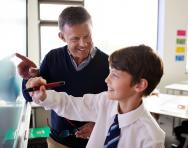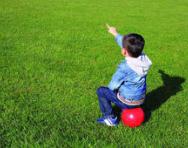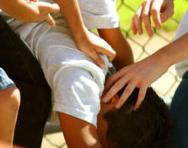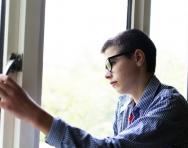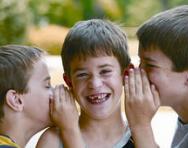What is primary SEAL?

With mental health conditions soaring amongst children, teaching the skills needed for emotional wellbeing has become increasingly important in schools.
SEAL – Social and Emotional Aspects of Learning – is an umbrella term that covers many of the skills children need to learn well and have a healthy, happy and fulfilling life, now and in the future.
These skills all underpin effective learning and can have lifelong benefits.
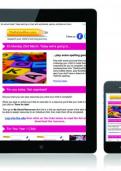
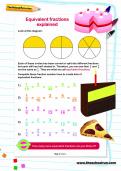
Boost Your Child's Learning Today!
- Start your child on a tailored learning programme
- Get weekly English & maths resources sent direct to your inbox
- Keep your child's learning on track
What skills does SEAL cover?
There are five main areas that fall under the SEAL banner:
- Self-awareness
- Managing feelings
- Motivation
- Empathy
- Social skills
How does SEAL benefit children?
Learning SEAL skills has a whole raft of benefits for children, within the classroom and in life as a whole.
SEAL teaches children how to be effective, successful learners. Research has shown that focusing on the social and emotional aspects of learning actually improves academic attainment. Children learn to solve problems independently, and it can also improve school attendance and behaviour.
Socially, SEAL helps children to make and sustain friendships, deal with conflict, work and play cooperatively, compete fairly and with respect for others, and be a good sport whether they win or lose.
Children learn to recognise and stand up for their own rights and the rights of others, understand the differences between people, such as cultural differences, and respect other people’s beliefs and values.
SEAL also teaches children skills that are important for resilience, including managing feelings like frustration, anger and fear, recovering from setbacks and persevering when things are difficult.
How SEAL is taught in primary schools
In primary schools, SEAL isn’t a standalone subject, but is embedded throughout the curriculum and in school life. It encompasses areas such as emotional literacy, social skills and personal development.
It’s not a statutory teaching area, but the vast majority of schools help children develop SEAL skills, whether through set lessons as part of PSHE (personal, social and health education) or wider school practices. To be effective, it needs a whole-school approach that promotes the same values across all year groups and all aspects of school life.
There are many ways in which SEAL is taught as part of core subjects. In English, for example, children are often asked to make inferences about characters’ feelings in books.
In maths, they might be challenged to review a problem they’ve got wrong and have another go at finding the correct answer.
In science, they learn about how people grow and change throughout their lives, including during puberty.
In RE, they learn about a variety of religions and their traditions, and may learn songs or do crafts inspired by other cultures.
In history, they might be asked to write a diary entry from the perspective of a person from the past, such as during the Great Fire of London.
At times, primary school children will have lessons that focus solely on SEAL skills. For example, they might have a lesson on bullying and a class discussion to come up with a set of rules to promote good friendships. This usually falls under the remit of PSHE.
There are also many other ways in which SEAL skills are fostered in primary schools, including:
- Circle time
- Assemblies
- Older students mentoring younger ones
- Buddy schemes and friendship benches
- Worry boxes
- School councils or forums
- Rewards and incentives
- Debates
- Mindfulness or relaxation sessions
- Help with conflict resolution e.g. if friends fall out
- Restorative justice
- Special events to mark occasions like Anti-Bullying Week
- Show and tell sessions to celebrate each other’s successes
- Sports day and sports matches
- Charity and awareness days
- Community outreach
This list is not exhaustive: there are very few aspects of school life in which SEAL cannot be embedded.
SEAL outside school
SEAL is not simply concerned with the pupils in the school, but extends out to staff, parents, carers and the local community.
Parents and carers can benefit from the ideas behind SEAL and some find the strategies and activities useful ways to communicate with their child. In fact, many parents find that SEAL has given them access to whole new areas of their child's personal, social and emotional life, and helped reinforce a close relationship.
Some schools will run specific SEAL workshops for families. Others involve parents and carers in aspects of school life, such as inviting them in for class assemblies where children’s achievements are celebrated.
It’s also highly likely that you’re developing your child’s SEAL skills without even realising, for example by encouraging them to persevere with their homework if their finding it tough, talking about their feelings if they’re upset or angry, and hosting playdates so they can deepen their friendships.
Supporting your child with a consistent set of values and behaviour expectations is key to SEAL, so it’s worth finding out if their school has a set of values, and aiming to follow them at home. Creating that fusion between learning in school and what they experience at home is vital, and will help them develop into a resilient, well-rounded individual.

Give your child a headstart
- FREE articles & expert information
- FREE resources & activities
- FREE homework help

